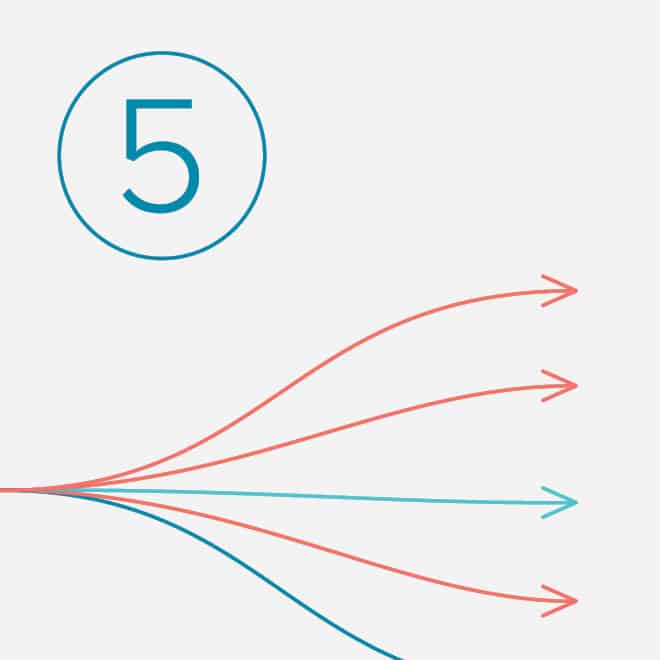Performance metrics are key for tracking progress toward specific goals and for keeping a pulse on the health and functionality of teams. Implementing and choosing these metrics is something you want to get right from the start—good performance metrics give you hard data and results that clearly track against a business’ overall goals and/or OKRs.
What do meaningful performance metrics look like? Meaningful performance metrics are based off of your company’s overall goals or OKRs. Translating organization goals into specific, team or individual contributor metrics helps leaders and managers create a unified and equitable track. Effective performance metrics thus enhance company wide alignment and bolster strategic vision. When done right, everyone feels they understand what they’re working toward and see how they’re performance metrics ladder up to an organization’s overall vision.
For tech companies today, this is imperative. Leaders are considering fully remote, hybrid, or in-person work environments, meaning constant adjustment and calibration are necessary. Employees need to feel confident that their work is meaningful and seen—especially through times of change.
We’ve compiled a list of 5 effective performance metrics for tech companies that will help unify and align your teams.
- Tempo or timeframe
A great measure of productivity is the speed at which a project goes from ideation to implementation to the final product. Timeframe dovetails nicely with OKRs as company-wide OKRs typically follow regular business cycles. It’s easier for managers and individual contributors to metabolize their work regularly on a cadence throughout the year versus in one, looming performance review at the end of the year.
2. Technical skills
As people are working remotely or in hybrid environments, adaptability to and understanding new technology is vital. On top of that, there’s more demand from users and clients for outstanding customer support and experience. Tech teams are now not only composed of engineers, but marketing, sales, and customer support as well. Setting metrics for how teams and individual contributors empathize with users to deliver solutions and creative ideas is incredibly important.
3. Learning and development
A vital part of performance metrics that are sometimes overlooked is if teams and individuals are learning and developing new skills. This is different from technical savvy in that this kind of development might not be tech-specific. Encouraging learning and development leads to employee engagement and retention—individuals feel empowered to learn new skills based on their interests and in turn, feel seen and valued. Organizations are constantly changing, growing, developing, and learning—employees should, too.
4. Collaboration
A perennial concern for leadership is inadvertently creating the environment for silos to thrive. A way to bolster collaboration efforts is by backing them up with performance metrics. And, if your company-wide OKRs relate to cross-functionality, collaboration will become top-of-mind to everyone and feel natural for employees to communicate more widely and transparently. As many teams are settling into or finding their preferred collaboration tools, adding in metrics to support adopting the new methods can help everyone ramp up quickly and effectively.
5. Feedback cadence
With collaboration, learning, and teaming, feedback is foundational for performance. Without feedback, no employee can consistently deliver their work—let alone thrive. Consistent feedback on a cadence helps improve employees’ relationship to their managers as well. Knowing when the feedback will happen, who is contributing to it (e.g. direct colleagues, project-specific colleagues, managers), and how the feedback is collected gives employees peace of mind and a more open view to accepting suggestions and improvements. Additionally, with more companies in hybrid and remote work environments, the desire and importance to communicate openly, regularly, and in-the-moment opens the doors for employees and teams to feel more and more comfortable giving and receiving feedback.
Setting metrics to measure progress is a cornerstone of Betterworks’ mission. With enhanced metric tracking features and goal progress calculation, our framework is designed to be a more accurate, realistic OKR tracker. If you’re prioritizing performance management, goal setting, and strategic alignment, Betterworks can help. Our platform coupled with our expert customer service team can guide your performance metrics journey—from basic goal setting, regular conversations for real-time course corrections, and support every step of the way. Learn more about our solutions and how you can drive your company forward with Betterworks.







